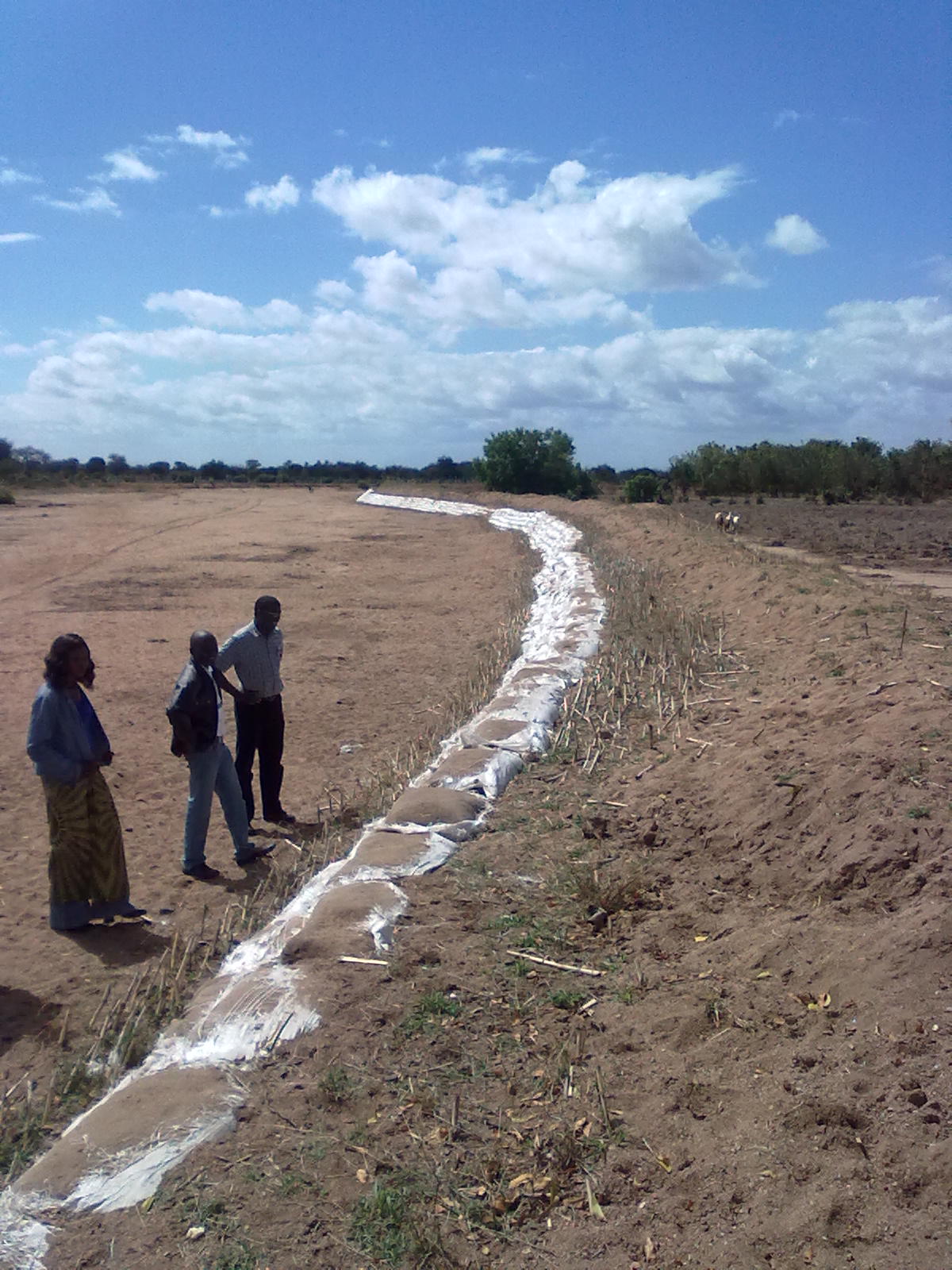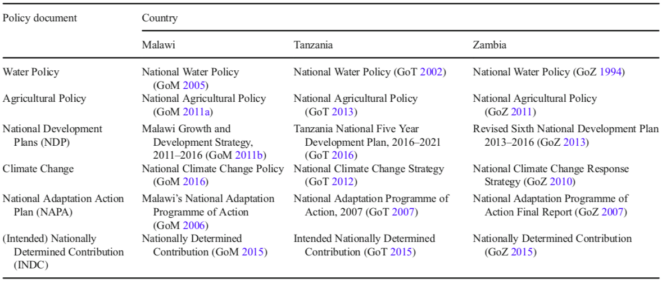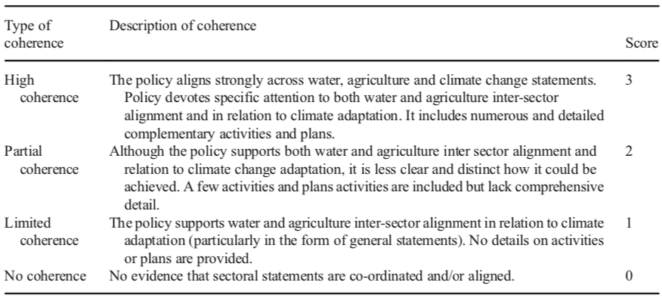Climate change adaptation and cross-sectoral policy coherence in southern Africa

Introduction
To be effective, climate change adaptation needs to be mainstreamed across multiple sectors and greater policy coherence is essential. Using the cases of Malawi, Tanzania and Zambia, this paper*investigates the extent of coherence in national policies across the water and agriculture sectors and to climate change adaptation goals outlined in national development plans.
A two-pronged qualitative approach is applied using Qualitative Document Analysis of relevant policies and plans, combined with expert interviews from non-government actors in each country. Findings show that sector policies have differing degrees of coherence on climate change adaptation, currently being strongest in Zambia and weakest in Tanzania. We also identify that sectoral policies remain more coherent in addressing immediate-term disaster management issues of floods and droughts rather than longer-term strategies for climate adaptation.
*Download the full article from the right-hand column.
This paper was originally published inRegional Environmental Change in January 2018.
Methods
Qualitative Document Analysis (QDA) has been utilised to facilitate analysis of policy documents. It provides an approach that considers the meaning and implications of text. It uses a subjective scoring system (based upon the authors’extensive sector knowledge and re- gional experience) followed by validation through a series of independent expert interviews.
The approach adopted in this study follows several steps to improve rigour and consistency of this analysis method, including: a) setting criteria for the selection of documents; b) obtaining documents; c) analysis of documents; d) validation; e) finalisation.


Key findings
Climate change adaptation planning in sectoral policies and NDPs
- Climate change adaptation was not explicitly addressed in any of the water policies in the three countries, but appears in agriculture policies of both Malawi and Tanzania.
- Adaptation does not feature in the agriculture policy of Zambia.
- Conversely, adaptation is included in several places in both Malawi and Zambia’s NDPs, and Zambia’s was revised in 2013 with mainstreaming of climate change as an explicit aim.
- Similarly in Tanzania, the two latest 5 year Development Plans (2011–2016; and 2016–2021) both include substantial references to climate change.
- Inclusion of adaptation in sector policies indicates that climate adaptation is starting to become mainstreamed within Tanzanian planning.
Policy coherence across sectors and with NDPs/climate change policies
- A large and diverse range of water and agriculture adaptation strategies were identified in policy documents for each country (see Table 3 of the paper).
- The majority of the strategies that are detailed in water and agriculture sectoral policies are also mentioned in similar (or exact) wording in climate change documents (NAPA, NCCP and (I)NDCs) and the NDPs, but with limited extensions in the most recent policy statements.
- While the strategies in NDPs recognise that climate conditions are dynamic and that actions are required to attain a desired state, whether adaptations are specifically to climate change or to broader economic, political, social and environmental changes remains unclear.
Expert interview verification and insights
- Interviews with NGO, donor and university experts in each country discussed the findings and scores in Table 3 (see paper)and explored the political economy of climate change adaptation planning.
- Initial national adaptation commitments in all three countries were developed for the NAPAs.
- There remain significant conflicts between some of the NDC commitments with national policies in other sectors, most notably with regard to energy and forestry.
- This shows that despite the establishment of cross-ministerial national climate changetechnical committees, only limited cross-sectoral planning has been supported to date.
- Each of the three countries has developed national climate change policies and/or national climate change strategies within the last 6 years, but the experiences are different in each case (see paper for full details).
Lessons Learnt
Our analysis suggests that policy coherence around climate change adaptation needs better horizontal climate governance co-ordination at the national level involving all relevant sectoral stakeholders. This will need to be enabled by improved institutional structures before policies can present a coherent approach to adaptation.
The Paris Agreement and the Sustainable Development Goals (SDGs), provide useful entry points for advances in cross-sectoral planning in relational to national climate statements. The SDGs incorporate economic, social and environmental aspects and recognise their interlinkages in achieving sustainable development. Countries need to use the opportunities within such international processes to leverage the necessary resourcing and financial support to update sectoral policies so as to improve their climate adaptation plans and cross-sectoral policy coherence.
Suggested citation
England, M.I., Dougill, A.J., Stringer, L.C., Vincent, K.E., Pardoe, J., Kalaba, F.K., Mkwambisi, D.D., Namaganda, E. and Afionis, S., 2018. Climate change adaptation and cross-sectoral policy coherence in southern Africa.Regional Environmental Change,18(7), pp.2059-2071.
Further reading
Related resources
- Vulnerability and Adaptation to Climate Change in the Semi-Arid Regions of Southern Africa
- Climate Risk and Vulnerability: A Handbook for Southern Africa (2nd Edition)
- When participation is not enough: Lessons from decentralised water governance in Namibia
- Using a sector development agency to mobilize a local green economy: The case of GreenCape in South Africa
(0) Comments
There is no content